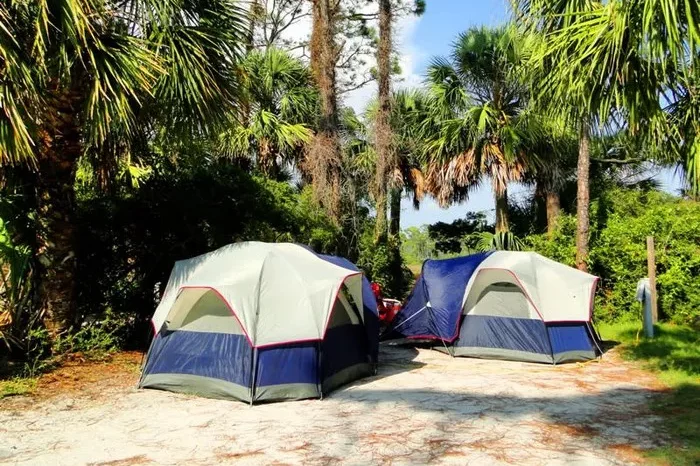Beach camping offers a unique experience where the beauty of the ocean meets the tranquility of nature. To ensure a successful trip, it’s essential to be well-prepared. This article will guide you through everything you need for a comfortable and enjoyable beach camping adventure.
1. Choosing the Right Location
Research the Beach
Before packing, research the beach you plan to visit. Look for:
Campsite Availability: Check if the beach has designated camping areas.
Rules and Regulations: Familiarize yourself with local regulations regarding campfires, pets, and alcohol.
Tide Information: Be aware of tide schedules to avoid flooding your campsite.
Accessibility
Consider how you will access the beach:
Driving: Check if you can drive close to your campsite.
Walking: Plan for a short hike if necessary and ensure you can carry your gear comfortably.
2. Essential Camping Gear
Tent
Your tent is crucial for shelter. Choose one that is:
Waterproof: Look for a tent with a good rainfly to keep out moisture.
Sand-Friendly: Consider a tent that can be anchored well to withstand wind.
Sleeping Gear
Comfortable sleeping arrangements are key for a good night’s rest. Bring:
Sleeping Bag: Opt for a lightweight, compact sleeping bag rated for the temperatures you expect.
Sleeping Pad: A pad adds insulation and comfort, making your sleep more restful.
Camping Chairs
Portable camping chairs make sitting around the campfire enjoyable. Look for:
Lightweight: Choose chairs that are easy to carry.
Durable: Ensure they can withstand the beach environment.
3. Cooking Equipment
Portable Grill or Stove
A reliable cooking source is essential. Options include:
Portable Grill: Great for grilling seafood and vegetables.
Camping Stove: A compact stove allows for easy cooking and boiling water.
Cooking Utensils
Pack the following utensils:
Pots and Pans: Lightweight cookware is preferable.
Utensils: Don’t forget spatulas, knives, and other cooking tools.
Biodegradable Soap: Use eco-friendly soap for washing dishes.
Food Storage
Keep your food fresh and safe from wildlife:
Cooler: Invest in a good cooler with ice packs.
Food Containers: Use airtight containers to keep items fresh.
4. Clothing and Footwear
Clothing Essentials
Pack suitable clothing for beach camping:
Swimwear: Bring at least two swimsuits for swimming and sunbathing.
Layered Clothing: Mornings and evenings can be cooler, so pack layers like long sleeves and a light jacket.
Quick-Drying Fabrics: Choose moisture-wicking materials for comfort.
Footwear
Select the right footwear for various activities:
Sandals: Ideal for walking on the beach.
Water Shoes: Protect your feet while wading in the water.
5. Personal Items
Sun Protection
The beach can be harsh on your skin. Bring:
Sunscreen: Choose a broad-spectrum sunscreen with high SPF.
Hat: A wide-brimmed hat provides additional sun protection.
Sunglasses: Protect your eyes from UV rays.
Insect Repellent
Insects can be bothersome at the beach. Use:
Repellent Spray: Choose a spray effective against mosquitoes and other bugs.
Citronella Candles: These can help deter insects around your campsite.
Personal Hygiene
Maintain cleanliness with the right supplies:
Biodegradable Soap: Use eco-friendly products for washing.
Toilet Paper: Always pack extra, as public restrooms may not have supplies.
Towels: Quick-drying towels are best for beach use.
6. Safety Gear
First Aid Kit
Accidents can happen. A well-stocked first aid kit should include:
Band-Aids and Gauze: For minor cuts and scrapes.
Antiseptic Wipes: To clean wounds.
Pain Relievers: Over-the-counter pain medication for headaches or discomfort.
Emergency Items
Be prepared for emergencies:
Flashlight or Headlamp: A reliable light source is essential for navigating after dark.
Multi-Tool: Useful for various tasks, from cooking to repairs.
Emergency Whistle: For signaling for help if needed.
7. Fun and Entertainment
Activities
Plan activities to make your beach camping more enjoyable:
Games: Bring frisbees, beach balls, or board games for fun.
Fishing Gear: If fishing is allowed, pack your fishing rod and bait.
Snorkeling Equipment: Explore the underwater world if conditions permit.
Music
Consider bringing a portable speaker or instruments:
Bluetooth Speaker: Enjoy your favorite tunes while relaxing.
Guitar or Ukulele: For a fun musical evening around the campfire.
8. Environmental Responsibility
Leave No Trace
Protect the environment by following these principles:
Clean Up: Pack out all trash and dispose of waste properly.
Respect Wildlife: Observe animals from a distance and do not feed them.
Stay on Trails: Minimize your impact by sticking to designated paths.
Campfires
If allowed, practice safe campfire habits:
Firewood: Gather driftwood or bring your own. Never take wood from living trees.
Extinguish Properly: Make sure the fire is completely out before leaving.
9. Planning Your Schedule
Itinerary
Plan a flexible itinerary:
Arrival Time: Aim to arrive before dark to set up your campsite.
Activities: Schedule time for swimming, exploring, and relaxing.
Meal Times: Plan meals to ensure you’re fueled for activities.
Weather Considerations
Check the weather forecast before your trip:
Rain Gear: Pack raincoats or ponchos if rain is expected.
Heat Preparedness: Bring extra water and cooling gear for hot days.
Conclusion
Beach camping can be a rewarding experience filled with relaxation and adventure. By preparing the right gear and following safety guidelines, you can enjoy the beauty of the ocean while having a memorable trip. Make sure to pack wisely, respect the environment, and embrace the spirit of outdoor adventure. With these tips, you’re ready to set up camp and enjoy your beach getaway!
Related topics:
- Is the Coleman Sundome Tent Waterproof?
- What Does Camping Mean in Slang?
- Is Camping Safe? A Comprehensive Guide

